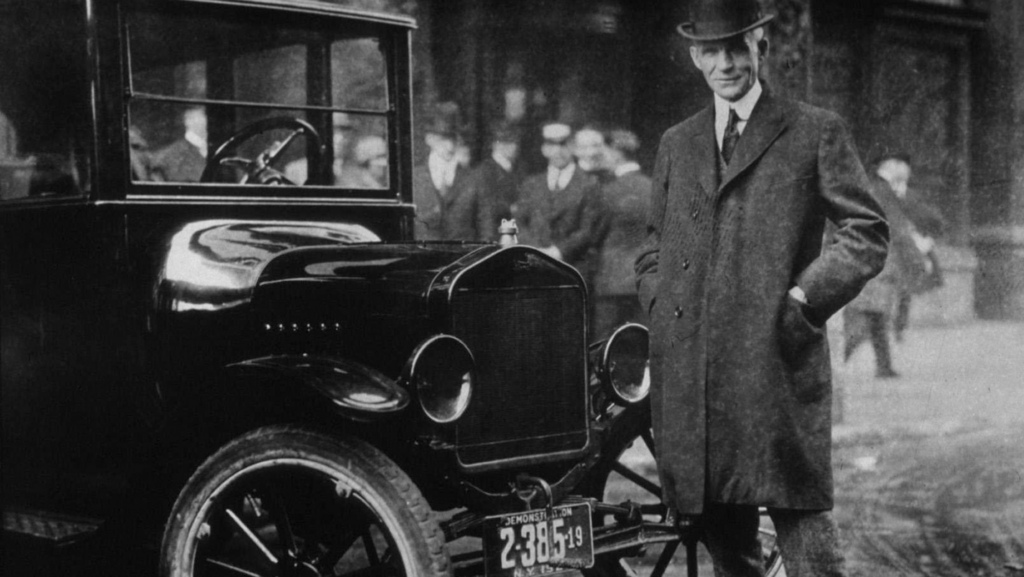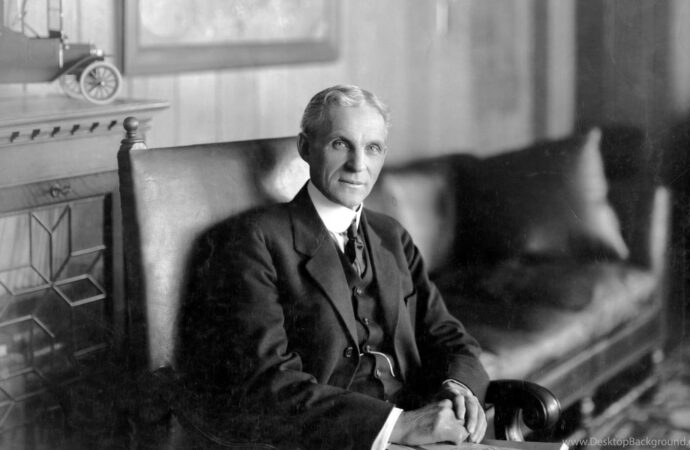Turning Gears, Changing the World: The Henry Ford Legacy.
Henry Ford, born on July 30, 1863, in Greenfield Township, Michigan, revolutionized the automobile industry and transformed modern manufacturing. His journey to success is a remarkable tale of innovation, perseverance, and visionary thinking.
From an early age, Ford exhibited a keen interest in mechanics. He dismantled and reassembled watches as a child, showcasing his innate mechanical aptitude. At 16, he left the family farm to work as an apprentice machinist in Detroit. This experience deepened his understanding of engines and machinery, setting the stage for his future endeavours.
In 1891, Ford joined the Edison Illuminating Company as an engineer. His promotion to Chief Engineer in 1893 provided him with the resources and time to pursue his passion for internal combustion engines. By 1896, he had built his first self-propelled vehicle, the Quadricycle. This early success fueled Ford’s ambition to create affordable automobiles for the masses.

In 1903, Ford and a group of investors founded the Ford Motor Company. Despite facing stiff competition and financial uncertainty, Ford was determined to make his vision a reality. In 1908, he introduced the Model T, a reliable and affordable car that revolutionized transportation. Priced at $850 initially, the Model T’s cost dropped significantly over the years, making it accessible to a broader audience. Ford’s emphasis on simplicity, durability, and affordability resonated with consumers, leading to unprecedented demand.
The true game-changer, however, was Ford’s introduction of assembly line production in 1913. Inspired by meatpacking plants and other industries, Ford implemented a moving assembly line at his Highland Park plant. This innovation drastically reduced the time it took to assemble a car from over 12 hours to just 90 minutes. The efficiency of the assembly line allowed Ford to slash prices further while increasing production. By 1927, over 15 million Model Ts had been sold, firmly establishing Ford as a leader in the automobile industry.
Ford’s impact extended beyond manufacturing. He implemented a $5 per day wage for his workers in 1914, doubling the average wage and significantly improving worker conditions. This move reduced employee turnover, increased productivity, and enabled workers to afford the very cars they were building. Ford’s progressive labour policies set a new standard for industrial employers and contributed to the growth of the American middle class.

Despite his successes, Ford faced challenges and controversies. His resistance to labour unions, anti-Semitic views expressed in his newspaper “The Dearborn Independent,” and initial reluctance to innovate beyond the Model T drew criticism. However, Ford’s contributions to industrialization and his role in shaping modern America are undeniable.
In 1927, the Model T was succeeded by the Model A, as Ford recognized the need for new designs and features. He continued to innovate, introducing the first V8 engine in 1932. Ford’s influence extended into World War II, when his company produced military vehicles and equipment, showcasing his adaptability and commitment to national service.
Henry Ford passed away on April 7, 1947, but his legacy lives on. He transformed the automobile from a luxury item into a necessity, fundamentally changing transportation and manufacturing. Ford’s innovations laid the groundwork for the modern automotive industry and demonstrated the profound impact of visionary leadership and relentless innovation.
Henry Ford’s story is a testament to how one man’s vision and ingenuity can drive monumental change, putting the world on wheels and shaping the future of industry and society.

























Leave a Comment
Your email address will not be published. Required fields are marked with *